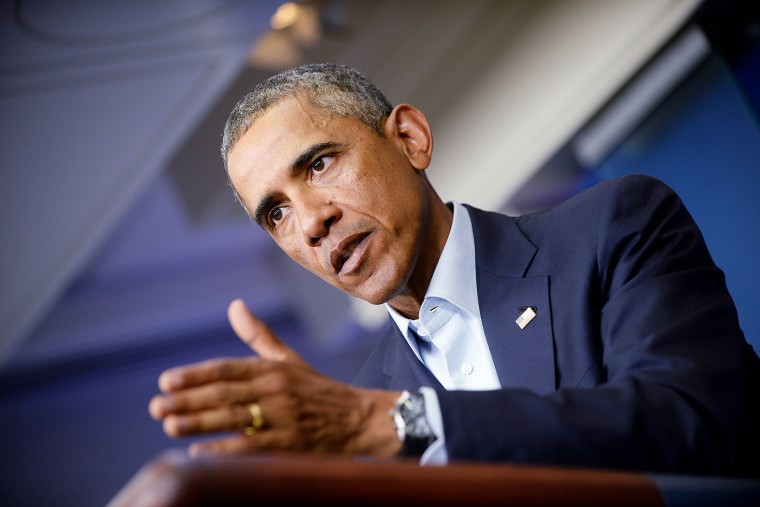Legislatively, President Obama's ability to shape his legacy has probably run its course. Oddly enough, the scope and significance of his legislative achievements in his first two years -- economy, health care, Wall Street, education, civil rights -- were greater than most modern presidents have been able to achieve in their entire tenures, but Obama's list will have no new additions.
But there are ways for presidents to shape their legacies in ways that have nothing to do with signing ceremonies. The New York Times reported yesterday:
Democrats have reversed the partisan imbalance on the federal appeals courts that long favored conservatives, a little-noticed shift with far-reaching consequences for the law and President Obama's legacy. For the first time in more than a decade, judges appointed by Democratic presidents considerably outnumber judges appointed by Republican presidents. The Democrats' advantage has only grown since late last year when they stripped Republicans of their ability to filibuster the president's nominees.
In case it's not obvious, the direction of the federal judiciary can and does have a considerable impact on the direction of the nation. And while the federal appeals courts are trumped by the U.S. Supreme Court, the highest court in the land only hears about 10% of the cases appealed to the justices.
In other words, the federal Courts of Appeals are often the final word on all kinds of major legal disputes -- and right now, Democratic-appointed jurists are in the majority in all but four of the 13 appellate benches. The day President Obama was sworn in, only the West Coast's 9th Circuit could say this.
There's no denying the effect of the so-called "nuclear option" in making this result possible. As Roll Call's report added, Obama "has already succeeded in his bid to refashion the bench — and the nuclear option has played a significant role. He has filled 30 percent of all the seats on the circuit courts of appeal, with a crucial 13 of those 53 judges confirmed since the filibuster was neutered."
And since Republicans effectively forced Senate Democrats to go "nuclear," the irony is GOP senators have helped ensure an important aspect of Obama's presidential legacy.
Some caveats are probably in order. First, the courts, at least most of the time, are not an explicitly partisan branch of government. Republican-appointed judges sometimes issue rulings celebrated by liberals; Democratic-appointed judges often side with conservatives. Watching the federal bench, in general, is not like watching Congress. Obama has helped guide the judiciary slowly to the left, but that's no guarantee that progressives will be thrilled with every ruling from Appeals courts with a "Democratic" majority.
Second, the current advantage is modest on most of the appellate benches. If Republicans take the Senate majority for Obama's final two years, the number of confirmed judges will shrink to almost zero. If a Republican president succeeds Obama, flipping some of these courts may not be too difficult.
Still, Democratic presidents tend to produce more left-leaning judges. At least for now, this means Obama and Senate Democrats have created a more progressive and more diverse judiciary.
Sahil Kapur added there are currently 50 vacancies on the district courts and 7 vacancies in the appeals courts, probably with more on the way. There may even be a Supreme Court vacancy in the near future. If there are any lingering doubts about whether the 2014 midterms matter, the courts offer a timely reminder about elections and consequences.
